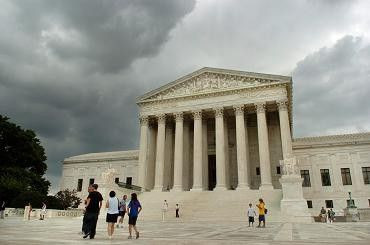Supreme Court Docket: After Break, Justices to Hear Key Business, Privacy Cases

The U.S. health care reform law is certainly the marquee case to land on the U.S. Supreme Court's docket, but there are cases on the justices' plates following the Thanksgiving break that could shape major industries and effect how privacy violations by the government can be redressed.
Here is a preview of the cases flying under the radar that the Supreme Court will hear beginning next week:
Credit Suisse Securities v. Simmonds
Argument: Nov. 29
With this case, the Supreme Court will decide if there is a strict, two-year statute of limitation on filing inside trading claims or if the deadline gets pushed back until certain trades get reported to the U.S. Securities and Exchange Commission.
This case involve short-swing trading, which are transactions that company insiders are required to disclose and disgorge any profit.
Should the court rule in favor of a group of underwriters of a companies' initial public offerings, would likely lead to the dismissal of more claims seeking to force company insiders to give profits from short-swing trading back to the company, Steven Kaufhold wrote in SCOTUSblog.
FAA v. Cooper
Argument: Nov. 30
Stanmore Cawthon Cooper was a pilot who sued the Federal Aviation Administration for mental and emotion distress when he was fired and prosecuted for lying about his HIV status. That fact was discovered in 2005 during a criminal investigation in which the Social Security Administration handed over his health benefits records to the FAA.
A privacy violation that led to a revelation of a person's medical history can certainly cause humiliation, embarrassment and mental distress, but are those actual damages akin to losing money or being too injured to make a living?
The Ninth Circuit Court of Appeals, based in San Francisco, said Cooper's mental distress claims can cause actual damage under the Privacy Act, a law that prohibits agencies from disclosing records to one another without receiving the subject's approval.
The FAA, however, says that this is a suit against the federal government, meaning that the scope of the Privacy Act should be narrowly viewed to cover damages that only result in actual money being lost.
Mayo Collaborative Services v. Prometheus Laboratories
Argument: Dec. 7
The Mayo Clinic, a medical research institution, is challenging two patents that Prometheus Laboratories owns for an analysis of blood tests after a certain drug had been administered.
Patenting a naturally occurring correlation between a patient's drug reaction and its effectiveness would inhibit innovation and the improvement of patient care, Mayo Clinic argued.
In support of Prometheus, the Pharmaceutical Research and Manufacturers of America argued in a court brief that the justices should avoid limiting the scope patent laws for medical processes.
In the absence of the incentives provided by patent protection for novel processes, PhRMA wrote, promising research for new methods of diagnosis and treatment likely will not occur.
FCC v. Fox
Argument: Jan. 10, 2012
The Federal Communications Commission's enforcement of television indecency standards are back on the Supreme Court's docket in a case involving a nude scene on Fox's 1990s police drama NYPD Blue and curses uttered during the 2002 and 2003 Billboard Music Awards.
The high court already upheld the fine the FCC levied against Fox for the award show cursing, deciding that the FCC's fleeting expletive policy was not arbitrary. The Supreme Court, however, let a lower appeals court decide if the policy was constitutional.
The Second Circuit Court of Appeals, based in New York, said the policy is unconstitutionally vague, creating a chilling effect that goes far beyond the fleeting expletives at issue here.
Fox and the other broadcast companies in the suit argue that the 1978 landmark indecency case, FCC v. Pacifica, which upheld the commission's authority to fine a station for airing George Carlin's infamous seven dirty words routine at an hour when children could be listening.
Over the past three decades, Fox's said, arguing for overturning the decision, the media marketplace has changed dramatically, thoroughly undermining Pacifica's rationale for its unequal treatment of broadcast speech under the First Amendment.
© Copyright IBTimes 2024. All rights reserved.





















